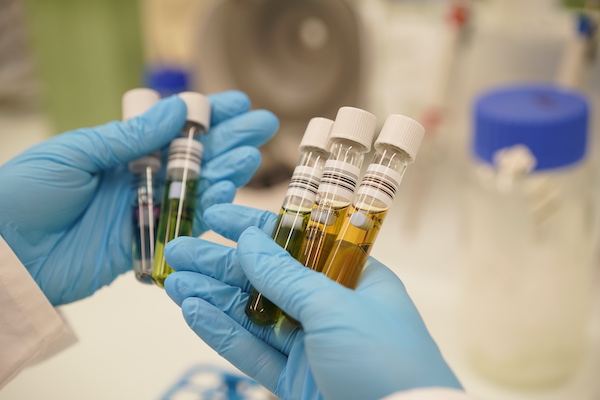Faculty of Biology UW participates in Interreg project „PestSpace”

22 01 2025
The Faculty of Biology at the University of Warsaw is one of the partners in the project “PestSpace – Improving resilience to the spread of plant diseases via a regional Pest Common Data Space”, which has received funding under the Interreg Baltic Sea Region program. The goal of the project is to develop an application that will facilitate the rapid identification of crop pathogens and pests.
As the climate in the Baltic Sea region changes, new crop pathogens and pests are emerging. Monitoring their occurrence and collecting data—particularly during the growth and development of host plants—has become essential. Developing scenarios for their future spread and the rate at which they occupy new areas depends on accurate data about their current distribution and developmental biology. Both existing and newly collected data must be cataloged and analyzed quickly to devise effective strategies for mitigating their impact.
The aim of the PestSpace project is to use existing technologies to create a system that enables rapid identification of crop pathogens and pests based on environmental DNA analyses and images sent via the application. Machine learning methods will be employed to identify specific diseases and pests. The collected data will be stored in a shared database on the PlutoF platform. A decision support system will be developed to notify producers about existing threats and recommend ways to combat them. Research will focus on winter wheat and faba beans.
The project leader is Prof. Urmas Kõljalg from the University of Tartu, Estonia.
The Polish partners are:
- University of Warsaw
- Institute of Plant Genetics, Polish Academy of Sciences
- Smolice Plant Breeding, IHAR Group
The leader of the University of Warsaw’s contribution is Dr. Julia Pawłowska.
Other project partners include:
- Estonian Centre for Agricultural Research and Knowledge, Jõgeva, Estonia
- Institute of Natural Resources, Helsinki, Finland
- University of Helsinki, Finland
- Latvian University of Technology and Life Sciences, Jelgava, Latvia
- Vytautas Magnus University, Kaunas, Lithuania
The project has eight supporting partners, including four organizations from Poland:
- Agency for the Promotion of Agriculture and Agribusiness
- Kujawsko-Pomorskie Agricultural Advisory Centre
- Main Inspectorate of Plant Health and Seed Inspection, Central Laboratory in Toruń
- Agrochemical company Innvigo.
These organizations will support the practical implementation of the project, test the developed technological solutions, and promote them among agricultural adepts and producers.